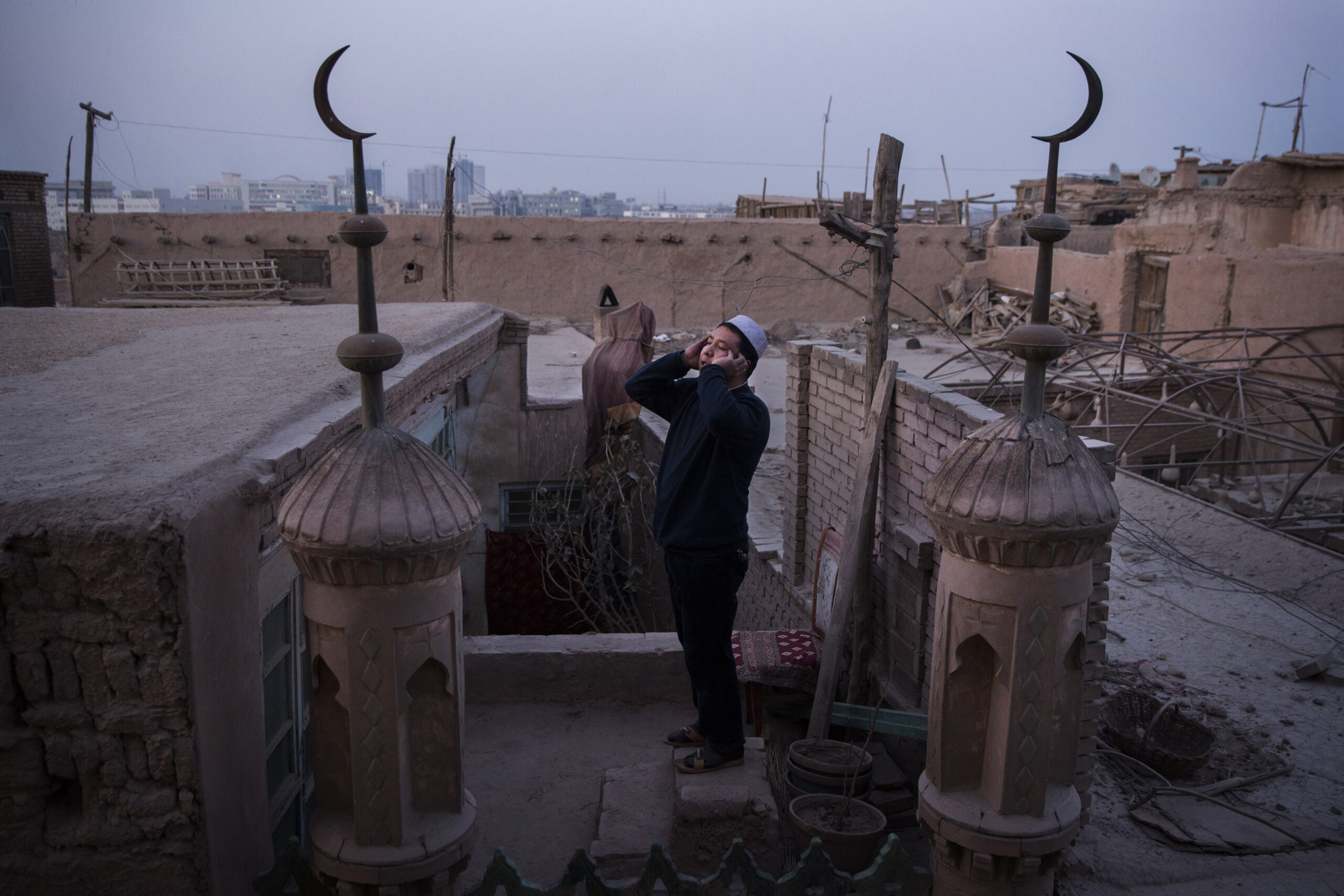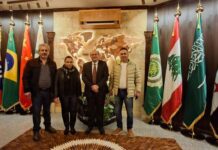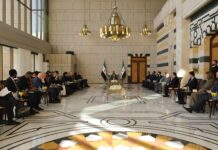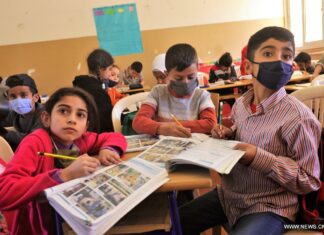
Ramadan, a sacred month of fasting, prayer, and reflection for Muslims worldwide, carries a heavy burden for the Uyghur, a Turkic ethnic group in Chinese-occupied East Turkestan. Since 1949, when East Turkestan came under Chinese communist control, Islam and the Uyghur identity and culture have faced suppression, leading to ongoing resistance against occupation. While Chinese policies targeting Uyghur identity have sparked international concern, little progress has been made to confront the Uyghur genocide, including mass detentions in “reeducation centers” and contemporary concentration and slave labor camps alongside extreme religious and cultural suppression. L24 spoke with Abdurehim Gheni, a Dutch Uyghur human rights activist, and Fatima Muhammad, a Uyghur Muslim in exile, shedding light on the historical and present-day realities faced by Uyghur Muslims during Ramadan.
Occupation, Oppression, and the Seeds of Genocide
East Turkestan was once home to a mix of Turkic people, Kyrgyzs, Uzbeks, Kazakhs, Khazars, Uyghurs, and Hazaras, despite a series of invasions and occupations starting in the late 19th century the region remained primarily independent and autonomous, preserving its native traditions and religious practices. That was until the late 1940s when the forces of Mao’s Chinese Communist Party (CCP) occupied the region, beginning a nearly 75-year campaign of repression and occupation.
“Prior to the arrival of Chinese colonialism in 1949,” Gheni told L24, “Uyghur communities faithfully observed Ramadan in accordance with Islamic principles and traditions. Each Uyghur city in East Turkestan had its own religious authorities, who oversaw the observance of Ramadan and played a vital role in coordinating religious activities.”

Yet the Maoist regime imposed draconian anti-Islam policies, erasing the religious and cultural heritage of the Uyghur people. The goal was the complete eradication of Islam and the Uyghur culture which was bolstered by indoctrination campaigns aimed to obliterate Uyghur identity. This cultural erasure laid the groundwork for the atrocities unfolding today.
Decades of occupation had slowly worn away Islamic practices to the point that many began to lose not only their ability to practice Islam but knowledge of their religion and traditions. “In the 1970s, there was no Ramadan,” said Fatima Muhammad, now in exile in the West – while her husband and extended family remain lost in Chinese concentration camps. “During Mao’s rule of occupied East Turkestan,” she continues, “We didn’t even know anything about our religion.” The anti-Islam policies imposed by the Chinese regime included the destruction of mosques and the complete suppression of all religious practices. “There were no mosques, there were no Islamic greetings, and there were almost no traces of Islam left,” she explained.
A Brief Respite and Ramadan’s Return
With the death of Chairman Mao, a new government took the reins of the CCP. It was during these transitional years that Islam, nearly completely uprooted from East Turkestan, once again began to blossom. “The new government,” says Muhammad, “started to change their policy a little bit, the translation of the Quran into the Uyghur language came out in 1987, and we started to gradually understand our deen (religion).”
From those days until the mid-2000s, says Muhammad, the Uyghurs practiced their religion in full; mosques were rebuilt and used, the Quran was recited, and Ramadan had also returned. “Ramadan is important to Uyghur Muslims,” explained Muhammad, “they know it is one of the five pillars of Islam. Before the Uyghurs were banned from fasting, they observed the fast like other Muslims around the globe. They would get together with their family and friends and have an iftar (a meal to break the fast) together. They celebrated Eid like other Muslims too.”
However, the Islamic spring that allowed the beauty of Islam and the Uyghur culture to once again flourish in East Turkestan was nearing its end, and just as before, the Chinese occupation would enact draconian policies intended to completely erase the Muslim and Uyghur identity from East Turkestan.
The Spark is Lit: The Ghulja Massacre
On February 5th, 1997, in the city of Ghulja in East Turkestan, hundreds of Uyghur youths gathered in a peaceful demonstration to demand their rights and freedom. The peaceful protests were met with a hail of bullets, arbitrary arrests, disappearances, and the devastation of hundreds of Uyghur youths. It was in the wake of the brutality in Ghulja and the ever-increasing campaign of terror and repression by the Chinese occupation that Fatima and her family fled East Turkestan for the West where the family would spend the next 15 years outside.
Following what the CCP called the “Ghulja ‘Incident’” persecution of Uyghurs under occupation only intensified. In the fall of 2001, an event occurred that the CCP was quick to capitalize upon, “Following the 9/11 terrorist attacks in the USA, China took advantage of the situation to associate Islam with terrorism and to brand Uyghur resistance as ‘terrorism.’”

Under the auspice of the “war on terror”, China carried out numerous human rights violations and crackdowns on peaceful protests, with the frequency and harshness only increasing with each passing year. In 2014, Muhammad and her family returned to Ghulja, to attend to their remaining assets in Ghulja, yet the policies of the CCP prohibited them from even selling their own home or withdrawing their money from the bank. “Two days before we were going to leave,” she recounts, “the Chinese regime took my husband’s passport, and he was unable to leave with us. To this day, he is still there. We don’t have any contact with him, and we don’t even know if he is alive or not.”
Sadly Muhammad’s experience is not unique and since then the war against Islam and its symbols in China has only increased. “Since 2017,” Gheni says, “the restrictions on Ramadan have become even stricter, with a zero-tolerance approach adopted by Chinese authorities. Uyghurs faced severe limitations on observing Ramadan, including being prevented from fasting and forcing Uyghur-owned restaurants to operate as usual.” A network of AI-assisted cameras tracks Uyghurs, monitoring their every move, even in their own homes; additionally, fasting during Ramadan is deemed illegal. According to Gheni, Uyghurs are forced “to drink during fasting hours to prove compliance. Refusal to take the test results in arrests and punishments for being uncooperative.”
On the Brink of Extinction
Today things have only gotten worse and the majority of East Turkestan is under a tyrannical dystopian police state where reeducation and labor camps like the Dabancheng Camp are the size of small cities and sexual and gender-based violence, involuntary sterilization, abortions, and forced “marriages” victimize women all in the name of “countering extremism.”
Gheni paints a grim picture of the current situation of Uyghurs, stating, “Their very existence is on the brink of extinction due to an ongoing genocide that began in 2017.” Independent investigations, including the Uyghur Tribunal chaired by Sir Geoffrey Nice QC, have provided damning evidence of China’s systematic campaign of repression and persecution against Uyghur Muslims.

Under China’s oppressive regime, Uyghur Muslims are denied the basic right to observe Ramadan and practice their faith freely. As Abdurehim Gheni emphasizes, “The situation for Uyghur Muslims is dire. They are subjected to constant surveillance, forced assimilation, and indoctrination.” A 2021 Newlines Institute report corroborates these claims, highlighting the government-mandated homestays that rupture family bonds and coercive measures to promote Han-Uyghur “marriages,” eroding Uyghur cultural identity. This systematic suppression of religious and cultural practices has left Uyghur communities in a state of perpetual fear and despair.
Muhammad’s testimony sheds light on the heart-wrenching reality faced by Uyghur families torn apart by China’s repressive policies. “I miss my family back home in East Turkestan, especially when it is Ramadan and Eid. A few years ago, I found a couple of my family members on the Douyin app. I watch the videos they post to see how they are doing. I can only watch in silence, as I don’t want to cause them any trouble from the Chinese government by messaging them. Whenever they post videos of family gatherings, I look carefully to see if everyone is there, but each time I look, my younger sister and nephew are not present. It’s clear they are in the concentration camps, as they used to pray and were religious.”
Only Faith in Their Hearts…
Reflecting on the broader state of the Muslim community (Ummah), Gheni urges action and solidarity, noting, “The state of the Ummah is distressing, with devastating genocides taking place in different countries, the Uyghur genocide, the Palestinian genocide, and the Rohingya genocide.” The reality of Ramadan for many Muslims, especially the Uyghur is heavy on Fatima’s heart, “Every Ramadan I am heartbroken when I think about my Muslim brothers and sisters in East Turkestan. While we are waiting for Ramadan with excitement, they are under oppression, and they have no freedom to practice religion. They only have Iman (faith) in their hearts, unable to act or utter anything related to Islam.”

Gheni urges the international community to take decisive action, emphasizing, “We cannot remain silent in the face of such atrocities. We must hold China accountable for its crimes against humanity.” While Muhammad echoes this sentiment, calling for solidarity and advocacy on behalf of Uyghur Muslims she highlights the importance of maintaining faith in the face of feeling overwhelmed, “We, as an Ummah, may not be able to do much right now, but we should never forget to offer sincere dua (supplication) for them, especially during this blessed month… we must continue to be their voice and raise awareness about their plight.”
As Ramadan comes to an end amidst conflict and persecution in Chinese-occupied East Turkestan, and around the world, the voices of Abdurehim Gheni and Fatima Muhammad serve as lasting reminders of the resilience and faith of Uyghur Muslims. Despite unimaginable hardships, their spirit endures, calling upon the global Muslim community to stand in solidarity and advocate for justice.








